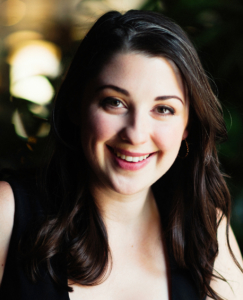Word from the Editor
While putting Issue 22 together this summer and fall, we decided to update Lunch Ticket’s mission statement. We thought it needed a revision as so much has changed with the publication—and in the world—since it launched ten years ago.
As our management team and the Antioch MFA administration workshopped the mission and landed on a final draft, I found the line that stuck with me the most was the last one, “Our teams read and look for work that plays with form and strives for a more just world.”
Lunch Ticket strives for a more just world.
A just world is not an easy feat. Sometimes, it feels like we’re getting further and further away from that, especially as of late. The midterm elections showed that our country is more divisive than ever. In June, the first major gun control bill in decades was signed into law—in the wake of the Uvalde school shooting—but people across the country still have their lives cut short by firearms everyday. Some women must travel across state lines to have bodily autonomy, then they live in fear that they could be charged criminally for it. As of 2021, poverty affects more than 37.9 million people, and that’s just in the U.S. We are far from a just world, which means striving for one is vital.
This issue of Lunch Ticket highlights pieces doing just that. Our contributors are diverse and the topics they share through their art vary, but all of their work embodies this mission.
They explore climate change, family, relationships, poverty, immigration, human rights, gun control, among others topics. Some of these works represent the mission by showing pain or hardship, other times humor or shock, but they all carry in them a vision for a brighter world.
In this issue, Maxwell Suzuki writes about interactions in his youth with guns in NATIONAL GUN OWNERS SURVEY or WHAT IT MEANS TO KNOW THE BODY ISN’T A TARGET. Our Castle, a flash prose piece by Christine H. Chen, tells of a mother from China who works to make ends meet for her family in America and her family back home. Pacific Blues and Grays, a young adult piece by Zoë Mertz, is told from the perspective of a girl who tries to find her place in a new family. These are just a few of the thought-provoking pieces in this issue.
Many of the works in Lunch Ticket Issue 22 include or are about nature. A just world can mean many different things, and often we see justice, or lack of it, in nature. Perhaps the injustice is easier to see. From wildfires displacing animals from their habitat, to droughts killing plants, to overfishing killing coral reefs. But we can also find justice in nature.
Our cover slide for this issue is an Aspen grove. I’ve always found Aspens to be the most helpful of trees. The white powder on their trunks is a natural sunscreen. Pieces of the bark and the tree’s leaves are a painkiller when eaten. The fluttery, light nature of the leaves on the branches allows for sun to shine through onto the forest floor around them so other plants can thrive in the environment. And, perhaps most important, Aspen trees exist in a root system. One tree sends out root shoots that grow into clones of the original. Together, the trees are called an Aspen grove and are considered one living organism. That organism can get big. One grove in Utah—named Pando—is said to be the largest living organism in the world, with 47,000 trees spread across one-hundred and six acres—all connected, all one. Aspen trees in the same grove support each other, sharing nutrients to keep one another thriving.
To me, a healthy Aspen grove shows a healthy community. An Aspen grove provides an example of a just environment.
If we understood, like Aspen trees inherently do, that helping one another means we all do better, maybe we would treat each other with more respect, maybe we would embrace diversity, ideas, things that are new and different to us.
Humanity does not function like an Aspen grove. But I believe positive change can take root when we put out work that connects, work that comforts and educates, work that makes us feel less alone.
We work toward a more just world.
In Manifesting Social Change: An Interview with Kavita Das, the social justice advocate and artist speaks about the challenge of meaningful change.
“What I’ve understood from my work before writing, and from writing as well, is that change takes time,” Das says. “Change is not easy. Change meets resistance. One of the ways you know that you’re on the right path towards something is when it’s not easy, when you meet with resistance.”
Thank you to all of the writers and artists who submitted for Lunch Ticket Issue 22. We loved reading your work. Please keep submitting and keep writing. Thank you to the Lunch Ticket staff who tirelessly read, wrote, edited, proofed, built, and shared these submissions and our weekly content. You’ve always believed strongly in what Lunch Ticket stands for. And thank you to the Antioch MFA team who helped us make decisions that have shaped Lunch Ticket for the better.
I hope you enjoy and are inspired by the pieces in Lunch Ticket Issue 22. I hope you see our mission come through in the work. And I hope the issue gives you hope in people and in positive change.
Barbara Platts is the editor-in-chief of Sweet Jane Magazine, an award-winning columnist, marketing specialist, and the editor-in-chief of Lunch Ticket. She’s worked in many forms of journalism, from public radio to newspaper, and is thrilled to be pursuing her MFA for nonfiction writing at Antioch University. She lives in Boulder, Colorado with her fiancé and two adorable pups. Follow her on Twitter @BarbaraPlatts and Instagram @BarbaraPlatts.





